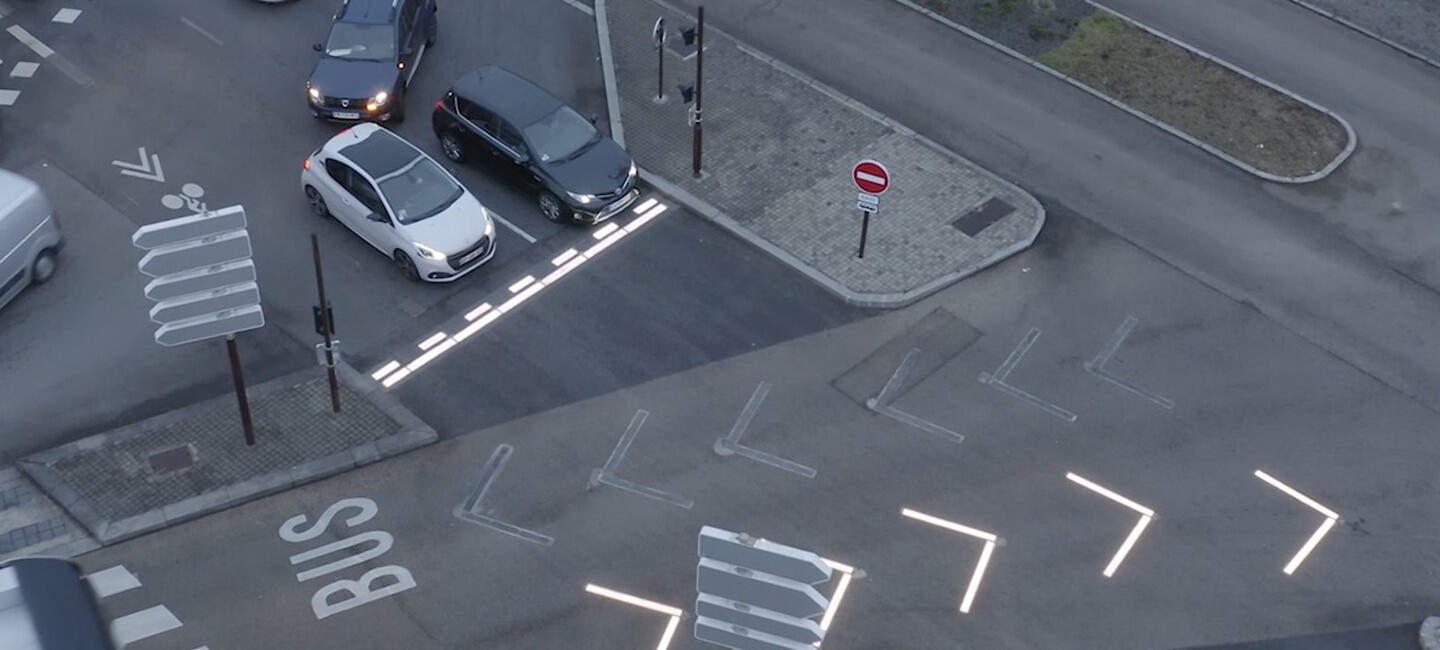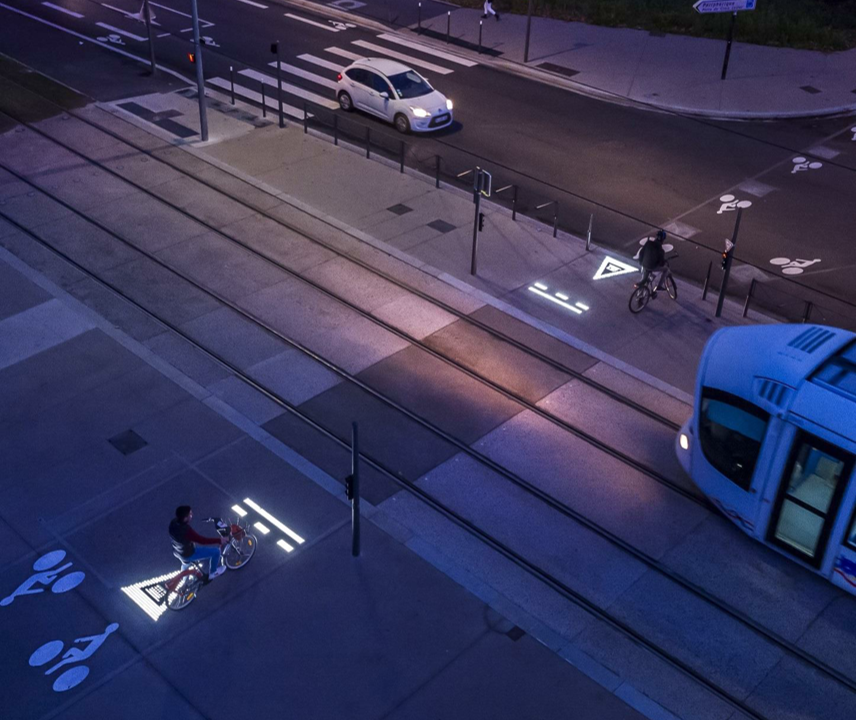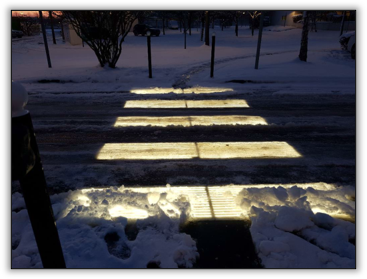Tested by Destia: dynamic road markings withstand harsh Finnish winters

It is early September 2022 and we find ourselves at an expo for electricity professionals in Jyväskylä. Destia’s stand is displaying for the first time a prototype of a product developed by Destia’s parent company Colas. Visitors are fascinated by the devices glowing on the floor, introduced to them as road markings, but they have their doubts: “Well, the idea is pretty good, but surely nothing can work in our Nordic conditions.” There’s only one way to find out, which is why Destia and Colas decided to install the first panels in Finnish ground to wait for the challenges brought on by winter.
The panel glowing on the floor of the expo hall is the dynamic, LED-based road signaling product Flowell. Developed and owned by Colas, the innovation is the only inlaid signaling system on the market that can withstand traffic and be used for marking pedestrian crossings, dynamic stop lines, parking lines and warnings. After arriving in Finland as part of Destia’s range of services, the product has sparked not only doubts but also extensive interest.
“Flowell is the first product of its kind in the Finnish market, and the solution has attracted a great deal of interest. The goal is to complete our pilot and then introduce the product to the Finnish streetscape elsewhere as well,” says Ville Mäki-Lohiluoma, Head of Unit for Telematics at Destia.
Light-emitting panels attract attention
Dynamic signaling systems are an excellent solution for places where traffic control is necessary but where the installation of traffic lights is unviable or unwanted. When the sensors notice an approaching vehicle or pedestrian, the signaling panels are activated and start safely guiding the traffic.
“The solution is not intended to be used everywhere or as a replacement for traffic lights or the usual road markings. However, it significantly improves traffic safety in areas with lots of traffic but no traffic lights. Examples include busy bicycle and pedestrian junctions and crossings. Dynamic lights have better potential to attract the driver’s attention compared to markings painted on the road surface,” says Mäki-Lohiluoma.
In practice, the signaling system can be installed anywhere just like normal road markings as long as the site has electrical connections and telecommunications links. The signaling system can be set to switch on during specific hours, if necessary, and the lights can be adjusted either manually or automatically based on the visibility conditions in the area.

Winter tests yield excellent results
In the autumn of 2022, Destia’s operating site in Imatra was selected as the testing location of the solution as the product would be guaranteed to face both snow and heavy equipment.
“We needed a location where we could monitor the system even under a layer of snow and where there would be enough traffic to really test the road surface. In Imatra, we were also able to monitor the system with cameras providing continuous image or video feed from the site,” says Arto Kuskelin, Business Unit Director for the Urban Planning and New Services Unit.
So what happened in the pilot; will Destia have to abandon its hopes of tapping into the product’s benefits in the snowy, icy conditions of the North?
“The system endured the winter very well! The surface remained in good condition and the LEDs stayed intact despite the winter conditions, snow ploughing and heavy traffic. As to the impact of a snow cover, the signaling system was clearly visible under the snow even in the lowest settings. This test proved that Flowell will do what it is designed to do and work well here in Finland as well,” says Project Manager Ilkka Haapamäki from Destia’s electric and telematics services for transport infrastructure.
A solution for harsh Nordic conditions as well
In addition to Finland and France, Flowell is used in the US, Monaco, the UK, Japan and the Netherlands. The data from Imatra will be used in the further development of the product and offers promising future prospects to the innovation both in Finland and around the world. The panels will continue serving the Imatra operating site and the system will be regularly tested for several years.
“From very early on, Flowell has spared both interest and doubts in several countries with a Nordic climate where the snow ploughing equipment, for example, is a harsh challenge to road surfaces. The slabs have already seen use in places with occasional snowfall, but this was the first time the system had to endure almost daily snow ploughing throughout the winter. Our test use with Destia in Imatra proved to be an important step as the system only showed extremely minor signs of wear and tear after the winter,” says Pierre Trotobas, International Development Director at Colas.

Article photo: Colas
